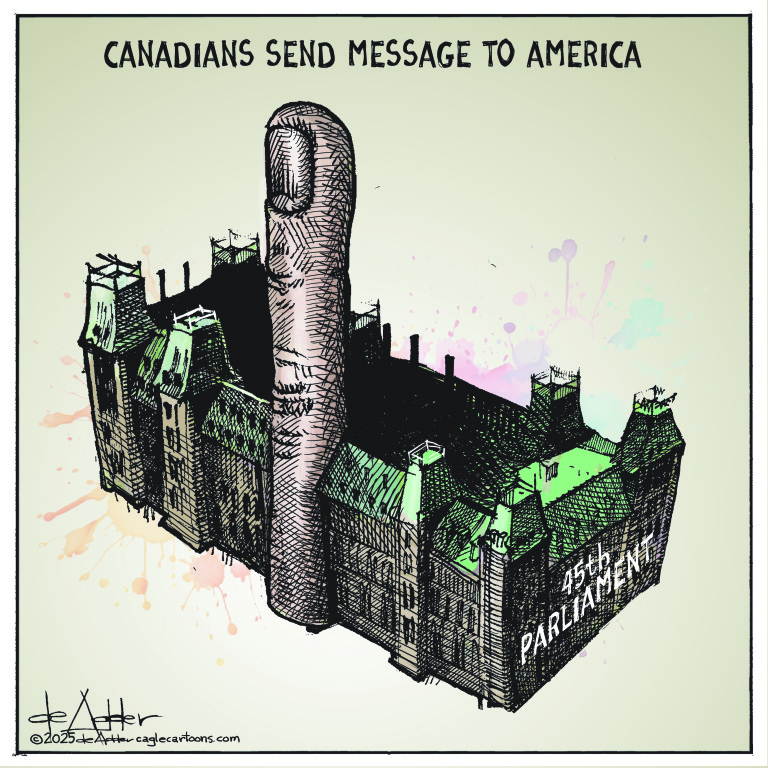
This week many Americans got their first look at new Canadian Prime Minister Mark Carney. Although Carney seems to have an impish sense of humour, for the most part he comes across as the banker he is and as a serious and highly intelligent guy with an impressive resume. More than anything, he’s a manager.
A funny thing happened in the last federal election in Canada. A few months before election day on April 28th, it looked like Conservative Party leader Pierre Poilievre was going to easily defeat the incumbent government led by Prime Minister Justin Trudeau. Polls showed Trudeau trailing Poilievre by as much as 25 points. Poilievre made himself an appealing option to Canadian voters by talking about affordability issues on things like housing, healthcare, and tax cuts. Inflation was frequently at the centre of his pitch. The real and frustrating difficulty families were having resonated and he looked like he was on the way to an easy victory.
And then in late January the great disrupter took the oath of office for his second term and everything changed. By the time Canadians cast their ballots, Trudeau was gone, Carney replaced him as Liberal Party leader and prime minister. Voters main concern had become what to do about Trump particularly on the matter of tariffs and threats to Canadian sovereignty. It didn’t mean that affordability went away, as the results between the two major parties was remarkably close at least in terms of popular vote. What it did mean was that Canadians, faced with a kind of national crisis rarely seen outside of war time, opted for the experienced hand, the big brain, the manager, the father figure. To be on point with this observation, someone at a Carney rally during the campaign actually yelled out “lead us big daddy” to giggles all around.
Also important in the Canadian context was that Poilievre spent a lot of time tearing down his own country and its supposed failings, which, by the time the Canadians felt seriously threatened by Trump’s attacks, did’t sit well with voters. Canadian seemed to be thinking about what they had and how important it was to preserve it.
The lesson for America is clear. Whatever the failings of the Biden Administration, and they were real as many Americans struggled, the world did not appear to be on fire. Yes, inflation was a problem, but the economy performed well though not for everyone. When the world is not on fire, people have the time and energy to think about what could improve in their lives, as they should.
There are many reasons Democrats lost the White House in 2024, but one of the main reasons is surely that a workman-like stability in running the affairs of the country gave many Americans the space they needed to take stock of what they believe needed to change. Change is key in any democracy and should be encouraged. Unfortunately, there is never a guarantee the best change agent will be chosen.
When Trump was elected, many Canadians decided they needed a Prime Minister to help them get back to a time before everything seemed like it was about the blow up. That didn’t mean they forgot about the bread and butter problems that still face the nation. They simply realized that a kind of stability was the only place from which to credibly address those problems and that they needed to get back there.
Let us hope that Americans soon weary of the “tear-it-all down” style of the current president and that they recognize solving the problems we all know need addressing won’t mean very much if the foundation of the country is severely compromised. Perhaps this is what Trump’s disastrous current polling numbers are telling us.
Retired political staffer/civil servant. Dual U.S./Canadian citizen writing about politics and the arts on both sides of the border.
















